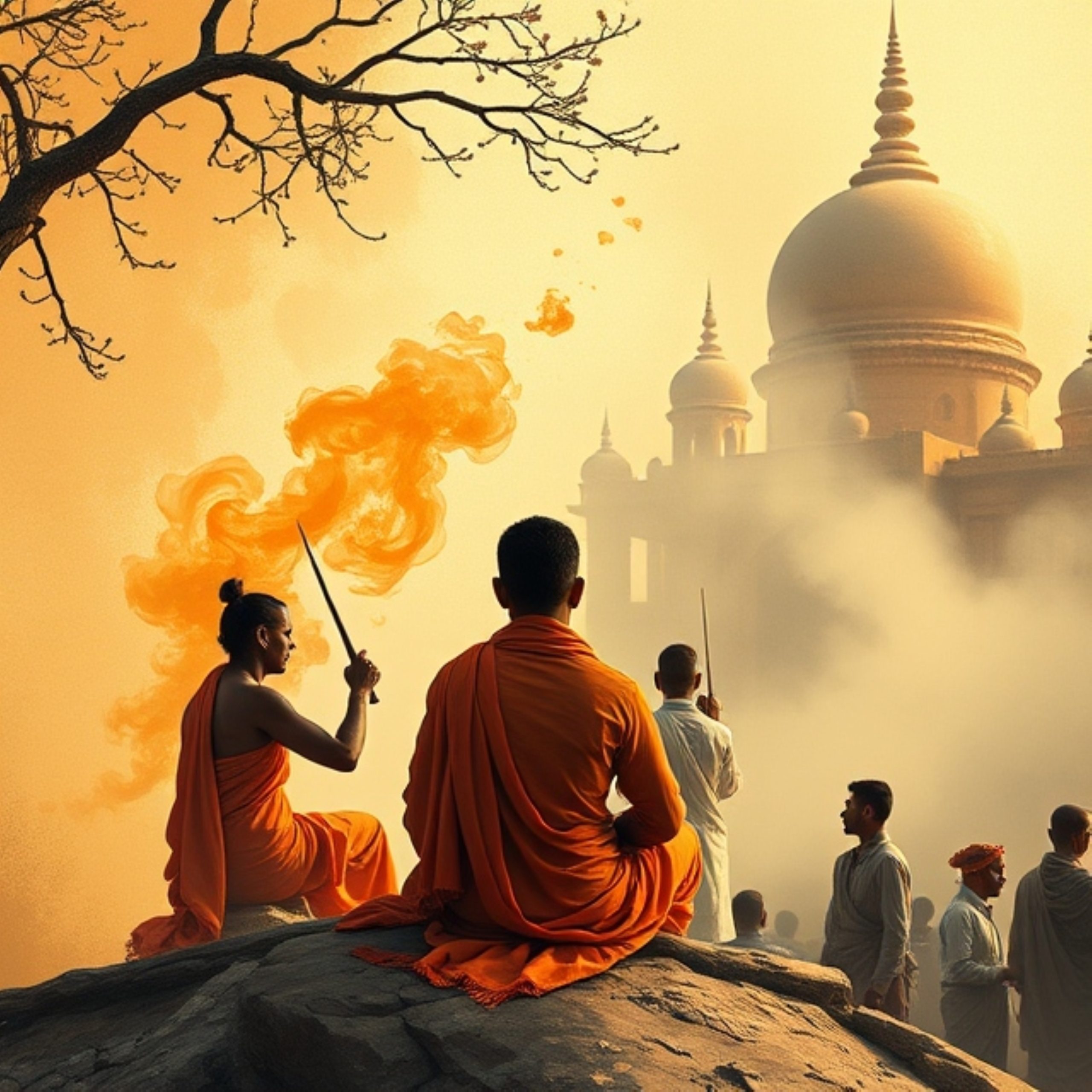 The rise, success, decline, and fall of a civilization depend on the inherent quality of its race. Nature and history hold no prejudice toward our conventional notions of good and bad, defining “good” as what survives and “bad” as what perishes. The universe shows no prejudice in favor of Christ over Genghis Khan.
The rise, success, decline, and fall of a civilization depend on the inherent quality of its race. Nature and history hold no prejudice toward our conventional notions of good and bad, defining “good” as what survives and “bad” as what perishes. The universe shows no prejudice in favor of Christ over Genghis Khan.
The great historian Will Durant is brutally honest as he explains how the world functions.
Civilizations do not grow because of “good” people but because of “active” people. The distinction of good or bad becomes irrelevant in this context.
Both Yudhishthira and Duryodhana mobilized their armies for a fierce battle. The Pandavas emerged victorious because they were powerful, resourceful, and happened to align with both dharmic and “good” values.
The Hindu race will not be destroyed, but Hindus are becoming less “Hindu” by adopting practices that diverge from Sanatani traditions. Perpetual preparedness is essential to safeguard both civilization and its race. Conservative values, though rigorous and often masculine, foster discipline and strength. Those nurtured by these values thrive and grow.
However, Hindus are weakening on two aspects: 𝘴𝘦𝘭𝘧𝘪𝘴𝘩 𝘮𝘢𝘵𝘦𝘳𝘪𝘢𝘭𝘪𝘴𝘮 and 𝘶𝘯𝘴𝘶𝘴𝘵𝘢𝘪𝘯𝘢𝘣𝘭𝘦 𝘴𝘱𝘪𝘳𝘪𝘵𝘶𝘢𝘭𝘪𝘵𝘺. The former is driven by mostly tamas and Rajo gunas, which fosters inactivity, indulgence, and self-absorption. This results in wrong perspectives and dangerous complacency.
For instance, marriage ceremonies have transformed into extravagant displays of sensuality and intoxication, losing their original sacred purpose as samskaras. Similarly, holy yatras have degenerated into mere tourism, often tainted by indulgent behaviors. Recently, a so-called practitioner even died from an overdose. Cultural festivals have devolved into Bollywood-style parties, celebrating sensuality over substance.
A civilization that embraces such decadence is destined for destruction.
On the other hand, self-proclaimed spiritualists often overemphasize on superficial renunciation, condemning even dharmic activities as obstacles to their personal growth. For instance, the Gita is misinterpreted as advocating the abandonment of all duties, rather than the fearless performance of duties in complete surrender to Bhagavan. God and his philosophy is often misused as an excuse for cowardly behavior. Such behaviour is dignified by calling it humility and non attachment and seeing duties to be distraction from God. Consequently, spiritual families discourage their children from pursuing their natural dispositions, even when Krishna urges Arjuna to act in accordance with his nature, despite potential destruction. Hindus often prioritize personal piety over social responsibility, neglecting the purushartha essential for sustaining civilization.
Our beautiful and profound philosophy can only endure if it is supported by dharmic action. Without this, it risks becoming a mere museum piece in the hands of intellectual, cultural, and political invaders.
The stories of Bangladesh, Kashmir, and Kerala stand as stark reminders. “Good” Hindus failed to withstand violent, radical separatist terrorism, often backed by the state itself.
The solution lies within our own shastras. Sri Rama and Sri Krishna did not defeat Ravana and Duryodhana through pleading or begging. They became embodiments of death for those who refused to cooperate and harbingers of happiness and prosperity for all.
In conclusion, a courageous and capable minority will fight to protect their dharma, dharmic philosophy, and traditions. They will resist both the allure of materialism and the dilution of dharmic values. Only through such action can Hindu civilization survive and thrive.
– Govinda Das (ISKCON Member)



